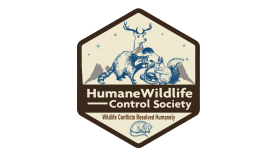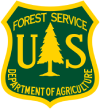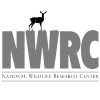Humane Wildlife Control in Sterling Heights, MI
The Humane Wildlife Control Society recommends non-invasive solutions to resolve human-wildlife conflicts. This includes:
Determining if the issue needs to be addressed at all
Opting for preventative measures first
Opting for wildlife exclusion as opposed to trapping
If trapping is the only way to solve the problem do so humanely
The Humane Wildlife Control Society screens candidates prior to recommendation. Our process requires any company we recommend to meet the following criteria:
Is properly licensed in Michigan for wildlife control
Carries appropriate business licenses and insurance
Complies with all Michigan laws and regulations for wildlife control
Adheres to the humane principles listed above.
In Sterling Heights, Michigan we recommend Humane Wildlife Removal Sterling Heights for professional wildlife control services. This is a private company that charges for their services.
Contact Information:
Platinum Wildlife Removal
586-477-4584
If you have any wildlife issues that can be handled by the state government agency for free, the Michigan Wildlife Commission can help.
State Contact Information: 517-284-6057
The State Department of Agriculture may also be able to address your wildlife problem for no charge.
USDA Contact Information: (800) 292-3939
Sterling Heights Guide to Ethical Wildlife Conflict Prevention Understanding the Conflict Drivers Core Prevention Strategies Structural Fortification (Exclusion): Secure buildings to block wildlife entry. Inspect and seal gaps in roofs, vents, eaves, and foundations with heavy-duty materials like galvanized steel mesh or concrete—wood alone is insufficient against determined gnawers like squirrels. Install chimney caps and vent covers with quarter-inch mesh, as recommended by the National Wildlife Control Training Program. One-way exclusion devices, proven effective in peer-reviewed studies, allow existing occupants (e.g., bats) to exit without re-entry, avoiding harm or orphaning young. Legal and Ethical Imperatives Benefits of Ethical Prevention
Proactive Strategies for a Safe and Harmonious Community
Sterling Heights, Michigan, a bustling suburban city in Macomb County near the Clinton River and surrounded by fragmented woodlands and parks, experiences frequent human-wildlife interactions. Common species—raccoons, squirrels, bats, skunks, and coyotes—adapt to our residential and commercial zones, leading to conflicts that threaten public safety, property, and ecological balance. The City of Sterling Heights mandates ethical, preventive solutions to minimize these encounters, aligning with Michigan’s wildlife laws and best practices in urban ecology. This expert guide equips residents, businesses, and property managers with science-backed strategies to prevent conflicts humanely and effectively.
Human-wildlife conflicts in Sterling Heights stem from habitat overlap and resource availability. Urban expansion reduces natural cover, pushing wildlife into neighborhoods like those near Dodge Park or Sterling Heights Nature Center. Harsh winters drive animals to seek shelter in attics or sheds, while abundant unsecured trash and pet food attract scavengers year-round. Research from the Michigan Department of Natural Resources (MDNR) and urban wildlife studies (e.g., Humane Society of the United States) shows that reactive measures like lethal control fail to address root causes, often exacerbating issues as new animals fill vacated niches. Ethical prevention targets these drivers directly, reducing the need for intervention.
Sterling Heights enforces humane, evidence-based methods to prevent conflicts:
Resource Management: Eliminate food and shelter attractants. Use wildlife-proof trash bins with locking lids—standard in Sterling Heights ordinances—and store them indoors until pickup day. Remove pet food, birdseed, and fallen fruit from yards, as these draw raccoons and skunks (per MDNR nuisance wildlife data). Clear brush piles and seal crawlspaces to deny nesting sites, cutting conflict rates by up to 70%, per Wildlife Society estimates.
Landscape Design: Modify outdoor environments to deter wildlife. Trim tree branches 10 feet from rooftops to block squirrel and raccoon access, a tactic endorsed by urban ecology research. Avoid dense shrubbery near homes, which shelters skunks or groundhogs. Install motion-activated lights or sprinklers—non-lethal deterrents supported by Cornell Lab of Ornithology findings—to discourage nocturnal visitors like coyotes.
Sterling Heights’ Unique Context
Sterling Heights’ suburban layout—spanning 36 square miles with parks, waterways, and proximity to Lake St. Clair—creates a wildlife conduit. Winter snows (averaging 30+ inches annually) force animals into heated structures, while spring breeding swells populations near green spaces like Clinton River Park. Coyotes, increasingly sighted in subdivisions, exploit pet food and small pets, per local Animal Control reports. Bats, protected under Michigan law due to white-nose syndrome declines, roost in older homes along Van Dyke Avenue. These factors demand tailored, proactive measures to prevent conflicts before they escalate into health risks (e.g., rabies) or property damage (e.g., chewed wiring).
Michigan’s Natural Resources and Environmental Protection Act (Act 451) and Sterling Heights Municipal Code regulate wildlife management. Lethal control is restricted—killing bats or using poisons violates state and local laws, incurring fines up to $500. MDNR permits are required for trapping or relocating protected species, ensuring humane handling by licensed professionals. Ethical solutions align with these mandates and scientific consensus: exclusion and prevention outperform lethal methods in efficacy and sustainability, per U.S. Fish and Wildlife Service studies, reducing repeat infestations by addressing access and attractants.
Public Health: Eliminates disease vectors (e.g., raccoon roundworm) without toxic hazards.
Property Integrity: Prevents structural damage, saving thousands in repairs (Humane Society data).
Ecosystem Stability: Preserves beneficial species like bats, which consume pests, supporting Sterling Heights’ green initiatives.
Resident and Business Responsibilities
Vigilance: Monitor for entry signs—gnaw marks, droppings, or noises—and fortify properties preemptively, especially pre-winter.
Compliance: Adhere to city trash ordinances and MDNR guidelines; use only licensed wildlife operators for complex issues.
Community Action: Report unsecured attractants (e.g., open compost) to Animal Control to protect neighborhood-wide safety.
Municipal Enforcement and Support
The City of Sterling Heights, through its Animal Care & Control Center, enforces these policies. Violations—unsecured trash or illegal control methods—face penalties under local ordinances, including fines or mandatory remediation. Free inspections and educational outreach are available via city programs to support compliance.







